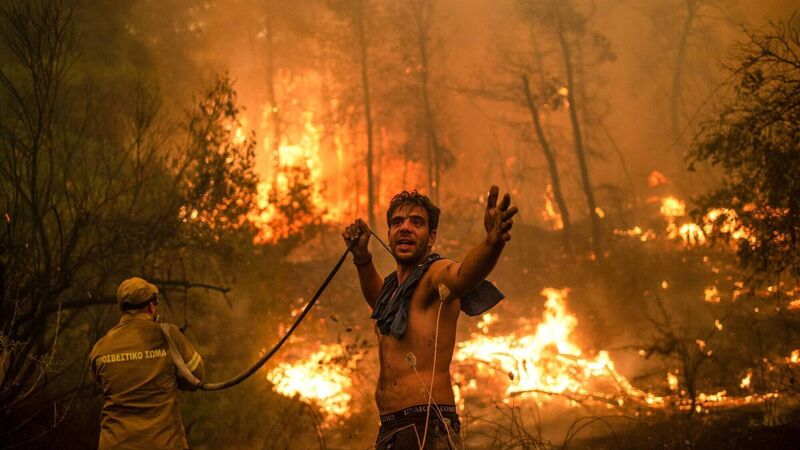'A triumph of diplomacy over real substance': Climate activists respond to Cop26 deal

A local resident gestures as he holds an empty water hose during an attempt to extinguish forest fires in Greece this year. Rachel Kennerley, Friends of the Earth said“The road to 1.5C just got harder when these talks should have cleared the way to making it a whole lot easier.
Picture via Getty Images
Diplomats, scientists, charities and NGOs have been robust in their criticism of the “Glasgow climate pact” at the end of the Cop26 conference.
The summit was billed as the last best chance to keep the goal of limiting temperature rises to 1.5C within reach – and avoid the worst impacts of climate extremes.
CLIMATE & SUSTAINABILITY HUB
















